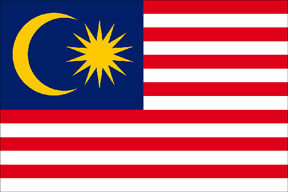
ZAMBOANGA CITY (Mindanao Examiner / Mar. 18, 2013) – Malaysia said the hostilities brought about by the intrusion of followers of Sultanate of Sulu in Sabah has brought miseries and hardships to many people living on the island state.
Sabah is being claimed both by the Sultanate of Sulu – based on historical and legal rights, according to Sulu Sultan Jamalul Kiram – and Malaysia, which annexed the oil-rich island following a referendum in 1963, as what Prime Minister Najib Tun Razak insisted.
Sabah, then called North Borneo, was ceded to the Sulu Sultanate by Brunei after it helped quell a rebellion in 1658. It was then leased to British North Borneo Company and in 1885, the United Kingdom, Spain, and Germany signed the Madrid Protocol which recognised the sovereignty of Spain in the Sulu Archipelago in return for the relinquishment of all Spanish claims over North Borneo which became a protectorate of the United Kingdom in 1888.
The violence in Sabah began after some 200 followers – many of them armed with rifles and machetes and knives – of Sultan Jamalul headed by his brother Raja Muda Agbimuddin intruded in February in Lahad Datu town to exert their determination. The standoff resulted in deadly clashes that left at least 62 followers of Raja Muda Agbimuddin dead and 10 on the Malaysian side.
The clashes forced over 2,000 Filipinos fleeing Sabah.
Malaysia has tagged Raja Muda Agbimuddin and his aides General Haji Musa Abdulla and Ernesto Sambas as terrorists and condemned their actions, saying it brought burden to the people of Sabah, including Filipino immigrants and workers mostly from Sulu and Tawi-Tawi provinces in the southern Philippines.
It said the Tausug communities – or natives from Sulu and Tawi-Tawi – came to Sabah to build a new life because of uncertain future in their homeland where jobs are scarce and poverty remains a major problem.
In Sabah, Malaysia said the Suluk people – as what Sabahans call the Tausugs – can easily find jobs and will not go hungry. They need not to worry about their homes because most of the Malaysian employers provide adequate housing and provisions for their workers and employees.
And now many, many Filipino compatriots in Sabah worry about their future following the daring intrusion by fellow Suluks. The “terror” in Lahad Datu has worried many Tausugs who now blamed Sultan Jamalul for the outbreak of violence. They themselves are now helping Malaysian authorities by providing or passing information about the intruders.
More than 300 people have been arrested by Malaysian police in Sabah on suspicion they were either supporting or aiding the group of Raja Muda Agbimuddin, and many of them had been arrested in the so-called “red zone” where the operations against the intruders are going on.
Tausug people who live in Sabah have strongly opposed violence and renewed their allegiance to the government there. They said Sabah is a peaceful Malaysian state where – for generations – accepted them as residents without discrimination.
Malaysia is also brokering the peace talks between the Philippines and the Moro Islamic Liberation Front which in October signed the Framework Agreement on the Bangsamoro homeland. The peace deal from the talks would further enhance trade and commerce between Sabah and Sulu and Tawi-Tawi and other provinces in the southern Philippines and this would strengthen relationship among members of the BIMP-EAGA or the Brunei-Indonesia-Malaysia-Philippines East ASEAN Growth Area and make it the fastest-growing economy in Southeast Asia.
Kuala Lumpur suspects that someone is financing the actions of Sultan Jamalul, an allegation strongly denied by the ailing Tausug leader. The Philippines and Malaysia have begun a separate investigation into these reports. Several Filipino politicians and former rebel leaders were linked to this plot to destabilize the Malaysian and Filipino governments ahead of elections in both countries.
The hostilities also resulted in stricter police campaign to rid Sabah of illegal Filipino immigrants and since the violence erupted the exodus of Tausugs continues in Sulu and Tawi-Tawi. Malaysian police was also reported confiscating identity cards and immigration documents from mostly Tausugs in Sabah’s Lahad Datu and Semporna towns.
Former Sabah chief minister Harris Salleh, who is now the president of Yayasan Islam Sabah, has already appealed to the Malaysian authorities to stop the confiscations in the Suluk areas in Lahad Datu and Semporna, saying, the police have no powers to destroy federal government documents except with confirmation from the National Registration Department.
Malaysian media also quoted him as saying that the police actions would only breed animosity between Sabah and the Sulu people. (Mindanao Examiner)
